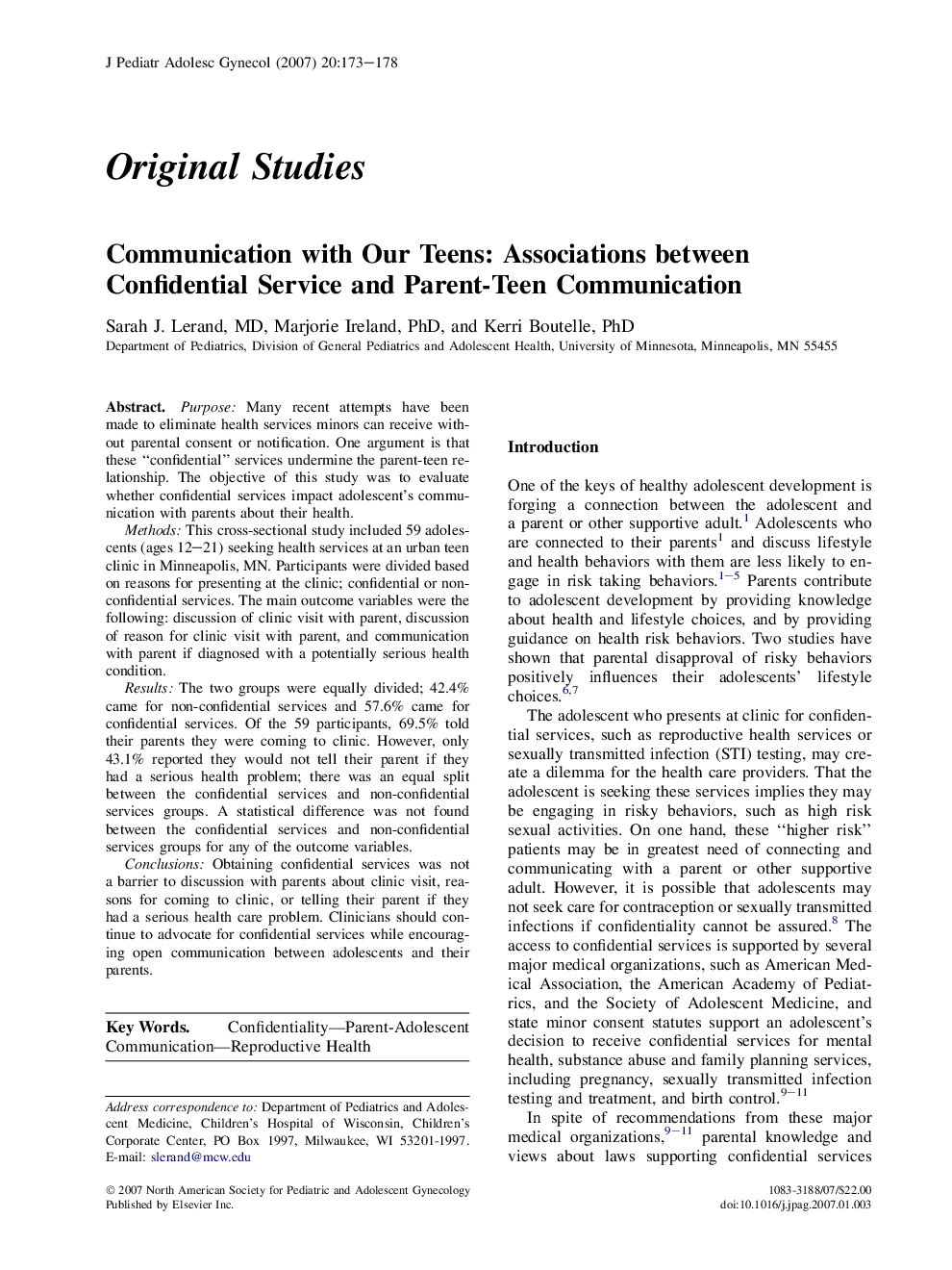| Article ID | Journal | Published Year | Pages | File Type |
|---|---|---|---|---|
| 3962350 | Journal of Pediatric and Adolescent Gynecology | 2007 | 6 Pages |
PurposeMany recent attempts have been made to eliminate health services minors can receive without parental consent or notification. One argument is that these “confidential” services undermine the parent-teen relationship. The objective of this study was to evaluate whether confidential services impact adolescent's communication with parents about their health.MethodsThis cross-sectional study included 59 adolescents (ages 12–21) seeking health services at an urban teen clinic in Minneapolis, MN. Participants were divided based on reasons for presenting at the clinic; confidential or non-confidential services. The main outcome variables were the following: discussion of clinic visit with parent, discussion of reason for clinic visit with parent, and communication with parent if diagnosed with a potentially serious health condition.ResultsThe two groups were equally divided; 42.4% came for non-confidential services and 57.6% came for confidential services. Of the 59 participants, 69.5% told their parents they were coming to clinic. However, only 43.1% reported they would not tell their parent if they had a serious health problem; there was an equal split between the confidential services and non-confidential services groups. A statistical difference was not found between the confidential services and non-confidential services groups for any of the outcome variables.ConclusionsObtaining confidential services was not a barrier to discussion with parents about clinic visit, reasons for coming to clinic, or telling their parent if they had a serious health care problem. Clinicians should continue to advocate for confidential services while encouraging open communication between adolescents and their parents.
